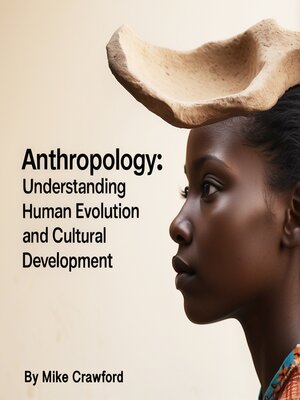Anthropology
audiobook (Unabridged) ∣ Understanding Human Evolution and Cultural Development
By Mike Crawford

Sign up to save your library
With an OverDrive account, you can save your favorite libraries for at-a-glance information about availability. Find out more about OverDrive accounts.
Find this title in Libby, the library reading app by OverDrive.



Search for a digital library with this title
Title found at these libraries:
| Library Name | Distance |
|---|---|
| Loading... |
Anthropology is the holistic study of humanity, examining human origins, cultural development, social structures, language, and biological evolution. It seeks to understand what it means to be human by analyzing the past, studying present societies, and considering future changes. Unlike other disciplines that focus on a single aspect of human life, anthropology integrates multiple perspectives to provide a comprehensive understanding of human existence.
The field of anthropology is traditionally divided into four main branches: biological anthropology, cultural anthropology, linguistic anthropology, and archaeology. Biological anthropology focuses on human evolution, genetics, and physical adaptation, comparing humans to primates and studying fossil records to understand the biological roots of our species. Cultural anthropology examines the customs, beliefs, and social institutions of different societies, exploring how culture shapes human behavior and interactions. Linguistic anthropology investigates the role of language in human communication, social identity, and cultural transmission. Archaeology studies past human civilizations through the excavation and analysis of artifacts, structures, and environmental data, providing insight into how societies developed over time.
A key principle of anthropology is cultural relativism, which emphasizes understanding cultures within their own context rather than judging them by external standards. This contrasts with ethnocentrism, the belief that one's own culture is superior to others. By adopting cultural relativism, anthropologists aim to promote a deeper appreciation for human diversity and challenge stereotypes and biases. Fieldwork, often involving ethnographic research, is a fundamental method in anthropology.







